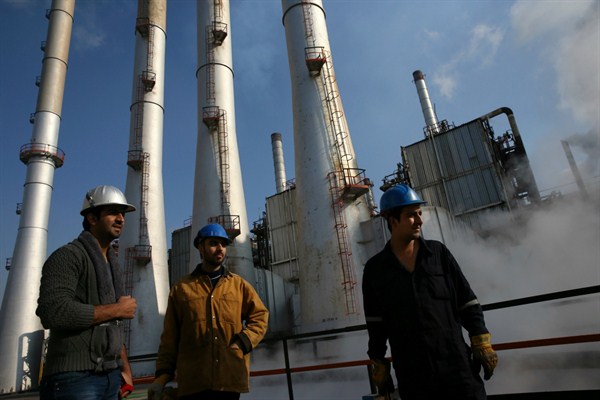History’s judgment of the Trump administration’s foreign policy is likely to be unkind, with the biggest question for now being whether it is the intended or unintended consequences that will warrant the most severe rebuke. There are plenty of examples of how the administration’s approach risks both catastrophic success and catastrophic failure, but its policy on Iran is particularly illustrative.
The latest case in point is the announcement Monday that the U.S. would not extend the waivers it had granted to five major importers of Iranian crude after reimposing unilateral sanctions on Iran’s oil sector last year. The countries—China, India, Japan, South Korea and Turkey—now have until May 1 to zero out their business with Iran. Japan and South Korea have largely tapered off their purchases in anticipation of the announcement, and India signaled its intention to comply. Turkey last week suggested it would seek to implement alternative payment mechanisms to skirt the sanctions, and China has condemned the move while remaining tight-lipped about its plans.
The announcement follows the State Department’s recent controversial decision to add the Iranian Revolutionary Guards Corps, or IRGC, to its list of terrorist organizations, and is part of the Trump administration’s overall campaign of maximum pressure designed to bring Iran to heel.

